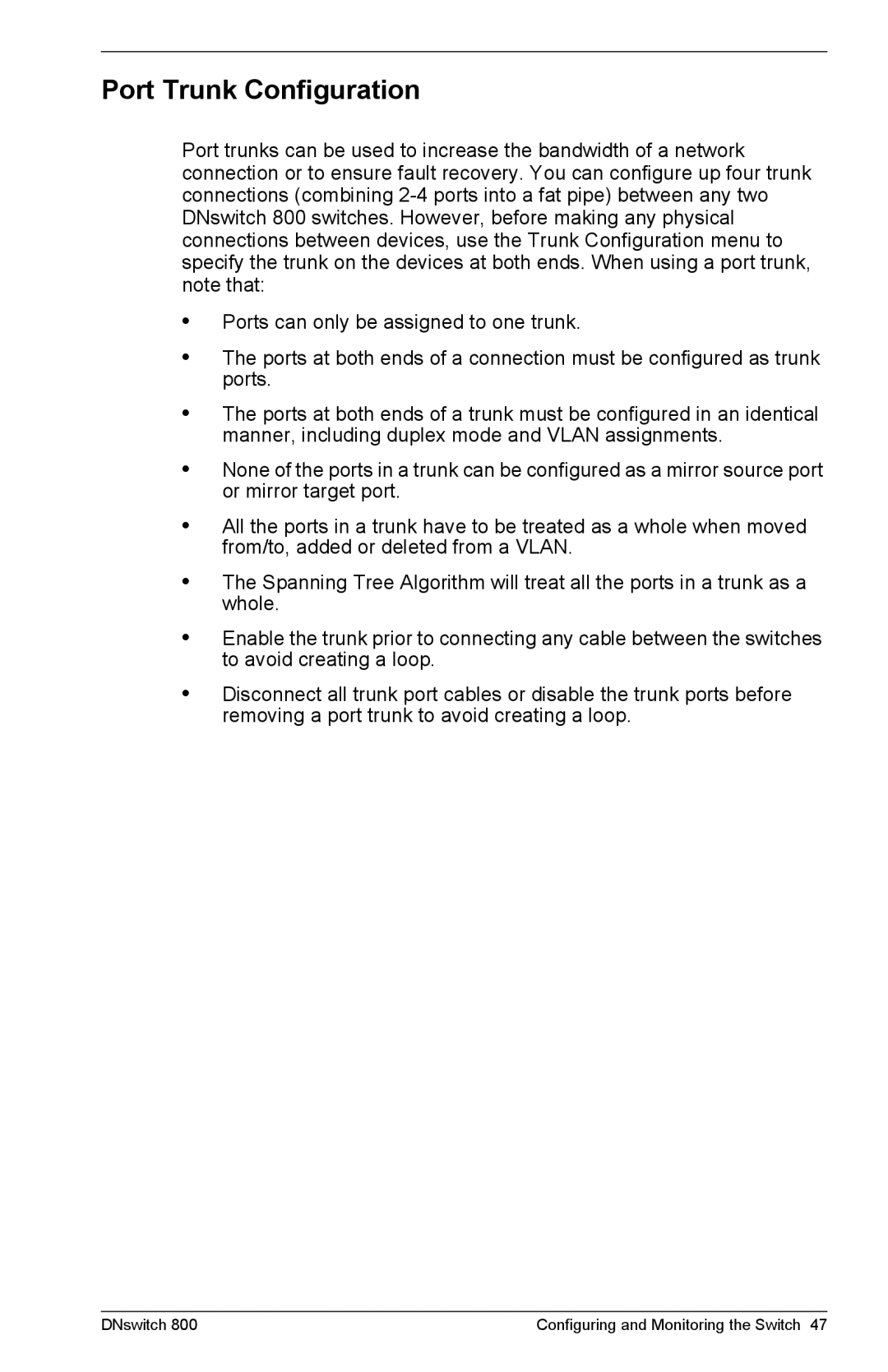
Port Trunk Configuration
Port trunks can be used to increase the bandwidth of a network connection or to ensure fault recovery. You can configure up four trunk connections (combining
•Ports can only be assigned to one trunk.
•The ports at both ends of a connection must be configured as trunk ports.
•The ports at both ends of a trunk must be configured in an identical manner, including duplex mode and VLAN assignments.
•None of the ports in a trunk can be configured as a mirror source port or mirror target port.
•All the ports in a trunk have to be treated as a whole when moved from/to, added or deleted from a VLAN.
•The Spanning Tree Algorithm will treat all the ports in a trunk as a whole.
•Enable the trunk prior to connecting any cable between the switches to avoid creating a loop.
•Disconnect all trunk port cables or disable the trunk ports before removing a port trunk to avoid creating a loop.
DNswitch 800 | Configuring and Monitoring the Switch 47 |
